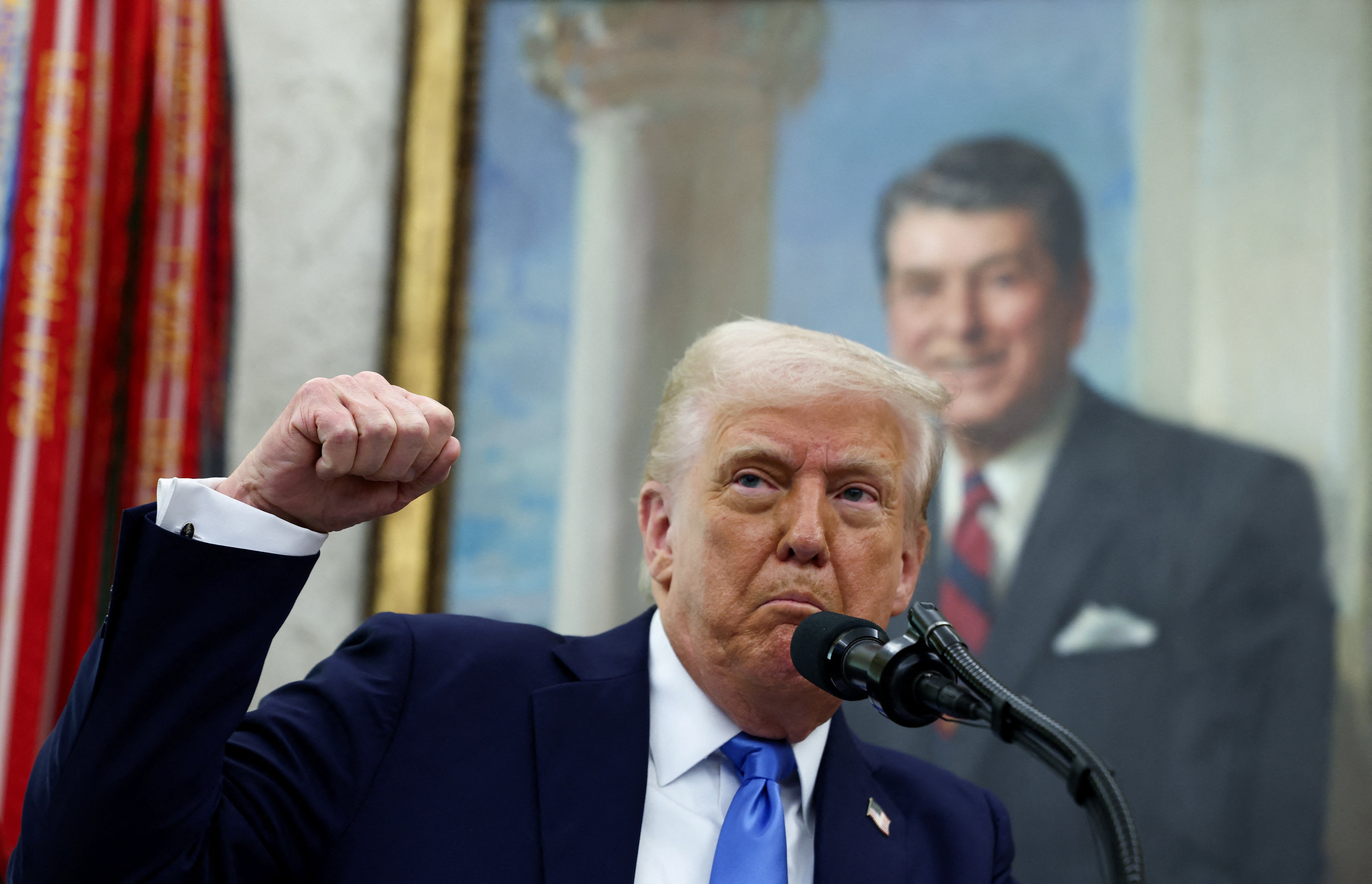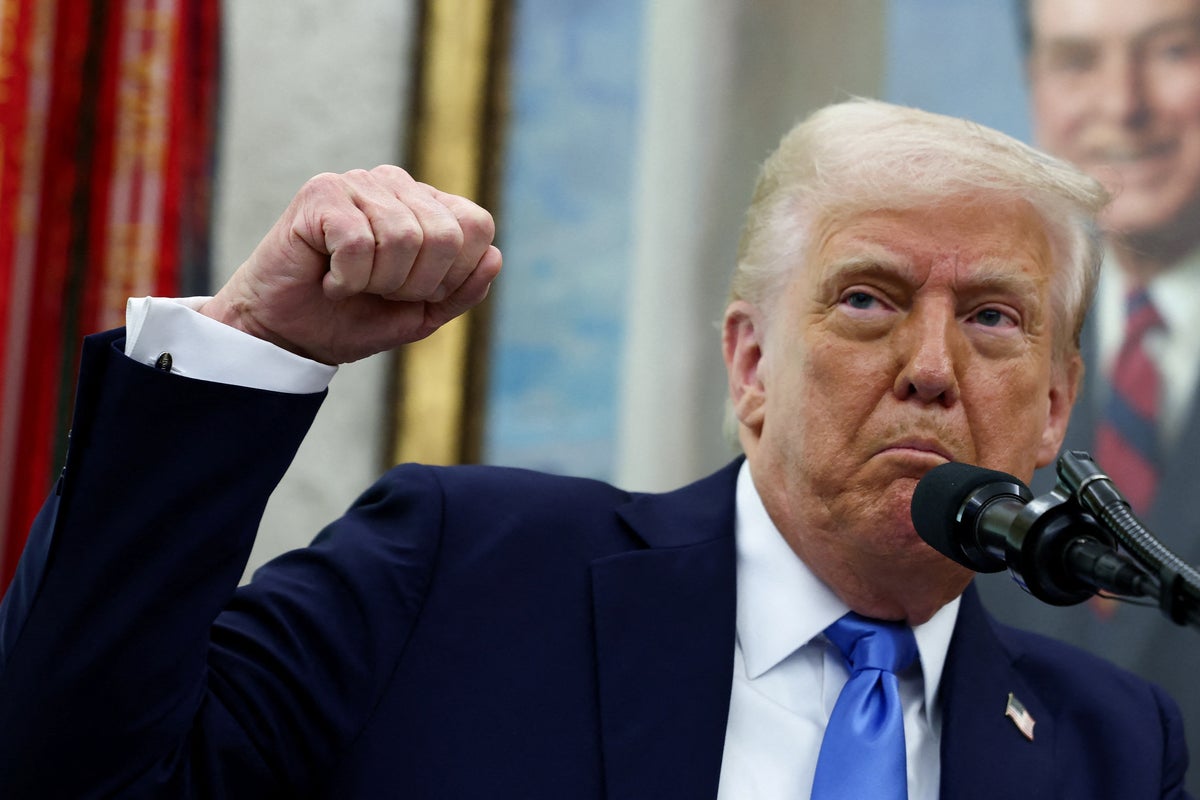President Donald Trump is urging senior advisers to adopt a more aggressive stance on tariffs as the administration prepares for a major escalation in its global trade war, The Washington Post reports, citing four individuals familiar with the matter.
Despite worries from allies on Wall Street and Capitol Hill about the impact of tariffs and calls for a more measured approach, Trump continues to advocate for sweeping trade actions under the belief that it will be beneficial for the American economy.
He believes tariffs will both generate trillions of dollars in government revenue and revitalize domestic manufacturing.
Economists warn that sweeping taxes on imported goods will ramp up inflation, and those costs will hurt American consumers. The stock market has fallen with each restatement of the president’s wishes.
The Post reports that the president has repeatedly told his advisers that he wants to increase trade measures against U.S. trade partners and allies and, in recent days, he has revived the idea of a universal tariff that would apply to most imports, regardless of their country of origin.
Trump regrets not implementing broader tariffs during his first term and has blamed advisers for holding him back from doing so, the Post said, adding that it remains unclear how seriously the concept of a universal tariff is being considered.
On Friday, the president said that he was open to negotiating deals with countries to avoid the new levies on imports; however, those agreements would need to be discussed after his administration announces reciprocal tariffs on April 2 — which he has dubbed “Liberation Day.”

Ahead of next week, Trump has already announced a 25 percent tariff on imported vehicles.
Perhaps in recognition of what the new tariffs might mean for American consumers and car owners, the president reportedly warned U.S. automakers not to raise their prices.
“President Trump has been unequivocally clear for decades about the need to restore American Greatness. America cannot just be an assembler of foreign-made parts – we must become a manufacturing powerhouse that dominates every step of the supply chain of industries that are critical for our national security and economic interests,” White House spokesperson Kush Desai said in a statement to The Independent.
“The Trump administration is committed to delivering on this vision with an America First agenda of tariffs, deregulation, the unleashing of American energy, and tax cuts,”
Trading partners are steeling themselves for what comes next.
Canadian Prime Minister Mark Carney tore into his American counterpart, saying the U.S. was “no longer a reliable trading partner” and that Canada’s old relationship with the US, “based on the deepening integration of our economies and tight security and military cooperation, is over.”
After such strident statements, he had a call with Trump described as “extremely productive” by the president.
In the U.K., Prime Minister Sir Keir Starmer is also considering taking a hard line with retaliatory measures against the U.S. after seeming to abandon hopes the country can avoid direct tariffs set to be unleashed this week.
Starmer might follow the EU and Canada’s lead on retaliatory tariffs, vowing to “act in the national interest” by “leaving everything on the table.”
While there had been hope in Britain that a trade deal might be reached ahead of April 2, a source told The Independent: “After the business with cars, tariffs look inevitable now.”

